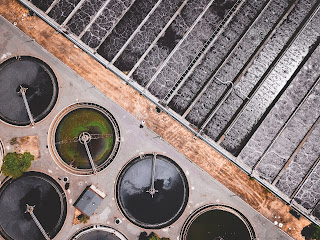Clogged Drains and Sewer Lines: Common Causes and Prevention Tips
Having a clogged drain or sewer line can be one of the most frustrating and unpleasant experiences for homeowners. It not only causes inconvenience, but it can also lead to costly repairs if not addressed promptly. In this article, we will discuss the common causes of clogged drains and sewer lines and provide prevention tips to help you avoid this problem.
Common Causes of Clogged Drains
Clogged drains are a common household problem that can be caused by various reasons. Some of the most common causes of clogged drains include:
Accumulation of debris: Over time, debris such as food particles, hair, soap scum, and other materials can accumulate and block your drains.
Tree roots: Tree roots can invade your sewer lines and cause clogs, especially if you have older pipes made of clay or cast iron.
Grease buildup: Pouring grease down your kitchen sink can lead to clogged drains because grease solidifies when it cools down.
Foreign objects: Flushing non-degradable materials such as baby wipes, cotton swabs, and feminine hygiene products down your toilet can cause clogs.
Prevention Tips for Clogged Drains
The following prevention tips can help you avoid clogged drains and maintain a healthy plumbing system:
Dispose of waste properly: Avoid flushing non-degradable materials down your toilet, and dispose of cooking oil and grease in a separate container instead of pouring it down the sink.
Use a drain strainer: Place a drain strainer over your sink or bathtub drain to catch hair and other debris before they accumulate and cause a clog.
Schedule regular drain cleaning: Hire a professional plumber to clean your drains regularly to remove any buildup and prevent clogs.
Common Causes of Sewer Line Clogs
A sewer line clog is a more severe plumbing problem that requires professional attention. Some of the most common causes of sewer line clogs include:
Tree roots: As mentioned earlier, tree roots can invade your sewer lines and cause clogs, especially if you have older pipes.
Flushed objects: Flushing non-degradable materials down your toilet can also cause sewer line clogs.
Broken pipes: Broken pipes can collapse and cause blockages in your sewer lines.
Prevention Tips for Sewer Line Clogs
Preventing sewer line clogs requires more effort and investment compared to preventing clogged drains. Here are some prevention tips to help you avoid this problem:
Regular maintenance: Schedule regular maintenance with a professional plumber like a plumber in Elizabeth NJ to inspect your sewer lines and address any issues before they turn into major problems.
Avoid planting trees near sewer lines: If you have older pipes, avoid planting trees near your sewer lines to prevent root invasion.
Install a backwater valve: Installing a backwater valve can prevent sewage from backing up into your home during heavy rainfalls or flooding.
Conclusion
Clogged drains and sewer lines can cause significant inconvenience and damage if not addressed promptly. Understanding the common causes of clogs and following the prevention tips we have discussed can help you avoid this problem and maintain a healthy plumbing system. Remember to schedule regular maintenance with a professional plumber to ensure your pipes are in good condition and avoid costly repairs in the future.




Comments
Post a Comment